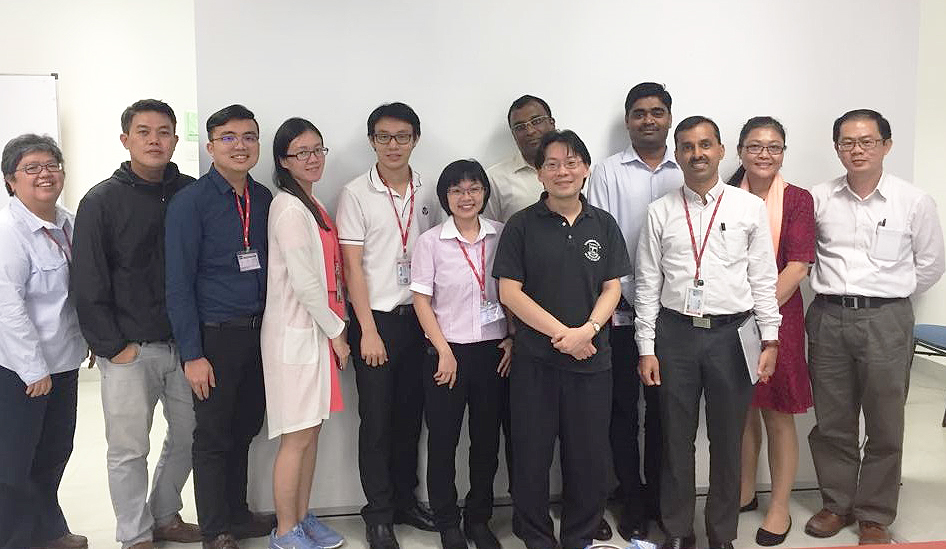

Dr Wong (front row, second from right) with the participants
UTAR Institute of Postgraduate Studies and Research (IPSR) organised a talk titled Global Challenges Research Fund (GCRF) on 24 July 2018 at Sungai Long Campus. It was delivered by University of Manchester Schools of Chemistry lecturer Dr Wong Lu Shin.
The objectives of the talk were to understand how a collaboration works in an international level and to understand the expectations of international fund managers while vetting the joint collaboration funding applications.
Explaining the fund at his talk, Dr Wong said, “The UK universities, in general, are interested in international collaboration and that has increased the cause of this thing called GCRF. This research fund was launched by the UK government about two years ago. An extremely large amount of money was given by the UK government to support researches that address the challenges of low and middle-income countries (LMIC).”
He also talked about the Challenge Areas and the key criteria of GCRF. He said that the Fund tackles a wide range of issues highlighted in the sustainable development goals such as environmental clean water, clean air, clean energy, sustainable agriculture, urban development and other LMIC-related issues. He also mentioned that the proposed research activity must be relevant to Official Development Assistance (ODA) in order to be eligible to receive the GCRF funding.
He also presented the list of countries that were qualified for the international aid and shared some observations from the previous calls. He advised people to be sensitive to the local context and not to be superficial and play discipline bingo. He also asked them not to go overboard and claim that they can solve global problems. He then explained the idea of Newton Fund, a fund given by the UK government to support research activities such as exchange visits between UK universities and partner countries, where the researchers can spend one month or longer abroad.
Wong graduated with a Bachelor of Pharmacy from the University of Nottingham in 1997. He then practised as a hospital pharmacist for four years while pursuing a postgraduate diploma in clinical pharmacy from the University of Bradford. He subsequently undertook his PhD studies in organic and analytical chemistry at the University of Southampton with Prof Mark Bradley. Upon completing this in 2005, he joined the Manchester Institute of Biotechnology as a postdoctoral research associate with Prof Jason Micklefield on the application of chemical biology and surface chemistry to biomolecular-array technologies. In 2008, Wong was awarded an EPSRC Life Science Interface research fellowship, which enabled him to work with Prof Chad A. Mirkin at the International Institute for Nanotechnology, Northwestern University. In 2011, he returned to UK and was appointed as a lecturer at the School of Chemistry.
© 2019 UNIVERSITI TUNKU ABDUL RAHMAN DU012(A).
Wholly owned by UTAR Education Foundation Co. No. 578227-M LEGAL STATEMENT TERM OF USAGE PRIVACY NOTICE